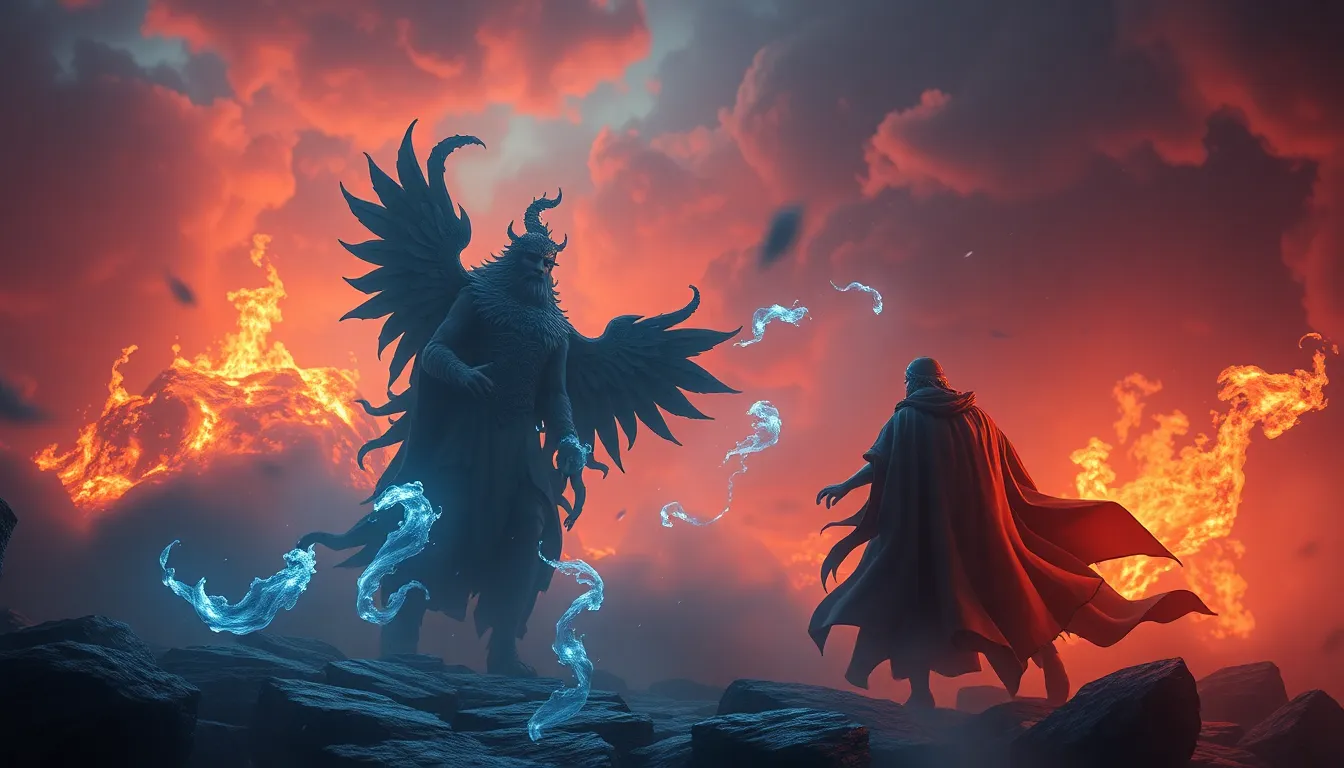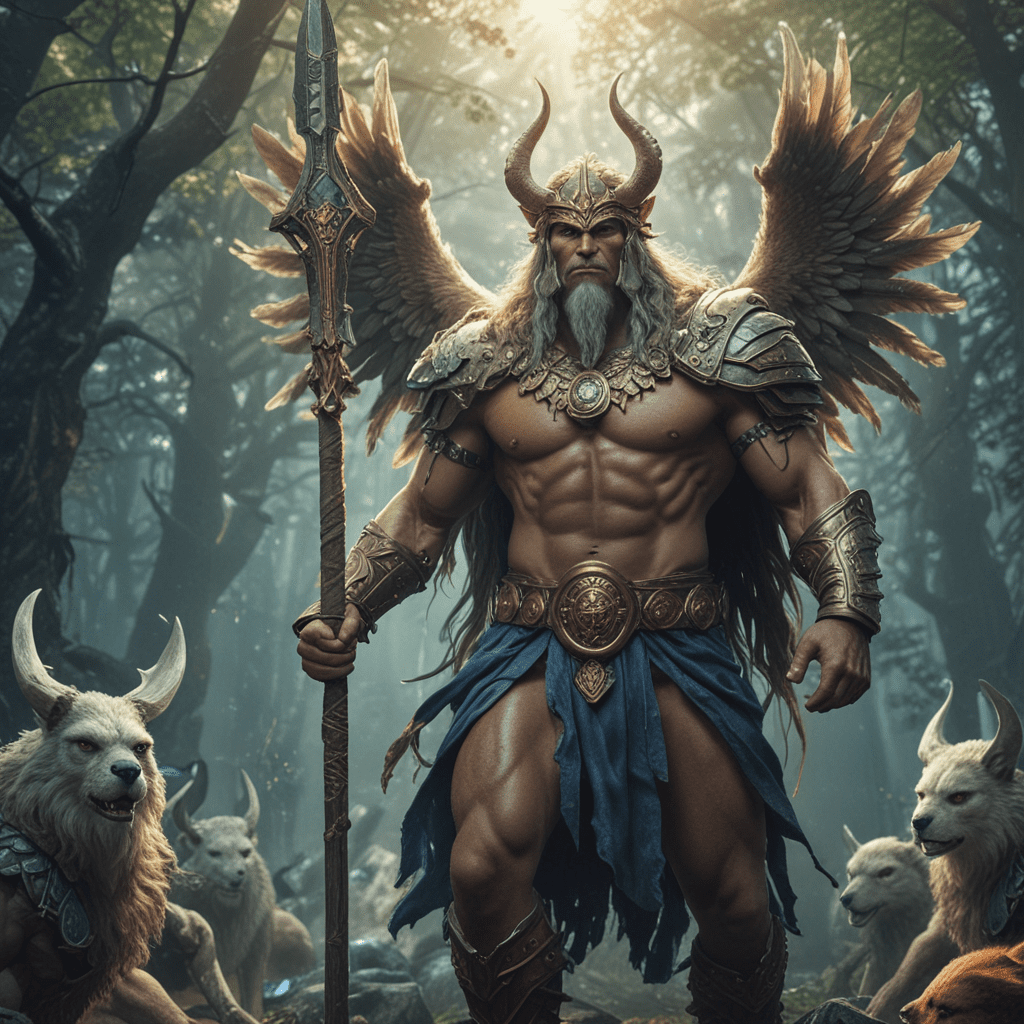Cultural Heroes: The Myths That Empower Us
I. Introduction
Cultural heroes are figures who embody the ideals and values of a society, often serving as symbols of aspiration and inspiration. They arise from myths—traditional stories that serve to explain, justify, or celebrate the culture from which they originate. These myths are crucial in shaping societal norms and values, providing a framework through which communities understand their identity and purpose.
In this article, we will explore the role of cultural heroes and the myths that empower individuals and communities, examining their characteristics, the power of storytelling, and the psychological impact they have on society.
II. The Role of Myths in Culture
A. Historical Context of Myths
Myths have existed since the dawn of human civilization, serving as a means of explaining the unexplainable and providing a narrative structure to the human experience. From the ancient epics of Gilgamesh to modern-day superhero tales, myths have been a constant in the way societies articulate their beliefs and values.
B. Function of Myths in Communal Identity
Myths function as a communal bond, uniting individuals under a shared narrative that reflects their values and aspirations. They provide a sense of belonging, allowing people to connect with their heritage and one another.
C. How Myths Influence Values and Norms
The values embedded in myths influence societal norms by establishing what is considered virtuous or heroic. Through the stories of cultural heroes, societies convey lessons about bravery, sacrifice, and integrity.
III. Characteristics of Cultural Heroes
A. Traits That Define a Cultural Hero
Cultural heroes often share several key traits:
- Bravery: They face challenges head-on, often at great personal risk.
- Integrity: They adhere to moral principles, serving as role models for ethical behavior.
- Selflessness: Cultural heroes often prioritize the well-being of their community over their own desires.
- Resilience: They demonstrate strength in overcoming obstacles and adversity.
B. The Relationship Between Heroes and Their Societies
The relationship between heroes and their societies is reciprocal. Heroes often emerge from the values and struggles of their communities, while their stories reinforce and perpetuate those same values, creating a cycle of inspiration and aspiration.
C. Examples of Common Hero Archetypes
Various archetypes of heroes can be identified across cultures, including:
- The Warrior: A fighter who defends their community.
- The Sage: A wise figure who provides guidance.
- The Rebel: An individual who challenges the status quo.
- The Martyr: A self-sacrificing hero whose death inspires others.
IV. The Power of Storytelling
A. Mechanisms of Storytelling in Myth Creation
Storytelling is a powerful tool in the creation of myths. Through narrative, societies can convey complex ideas, emotions, and experiences in an accessible format. The use of archetypes, symbols, and dramatic conflict helps to engage audiences and facilitate understanding.
B. The Impact of Narratives on Personal and Collective Identity
Narratives shape both personal and collective identities by providing individuals with a framework to understand their place in the world. They allow people to connect their personal experiences to larger societal narratives.
C. Case Studies of Effective Storytelling in Cultural Myths
Examples of effective storytelling in cultural myths include:
- The tale of King Arthur and the Knights of the Round Table, which embodies ideals of chivalry and unity.
- The story of Mulan, highlighting themes of bravery and gender roles.
- The African folklore of Anansi the Spider, which teaches lessons about wisdom and cunning.
V. Global Perspectives on Cultural Heroes
A. Comparison of Cultural Heroes Across Different Societies
Cultural heroes vary widely across different societies but often reflect similar themes of bravery, sacrifice, and the fight against injustice. The universality of these themes speaks to a common human experience.
B. Regional Variations in Mythology and Heroism
Different regions have unique mythological frameworks that influence their concept of heroism. For example:
- In Greek mythology, heroes like Hercules reflect ideals of strength and perseverance.
- In Native American cultures, figures like the trickster coyote embody wit and adaptability.
- In modern Western cultures, superheroes like Superman represent the fight for justice and truth.
C. The Influence of Globalization on Cultural Hero Narratives
Globalization has led to the blending of cultural narratives, creating hybrid heroes who embody traits from multiple cultures. This phenomenon allows for a richer understanding of heroism across different societies.
VI. Myths of Resistance and Empowerment
A. Exploration of Heroes Who Challenge Oppression
Throughout history, many cultural heroes have emerged as symbols of resistance against oppression. Figures like Nelson Mandela and Rosa Parks have become icons of social justice, inspiring movements for change.
B. How Myths Can Inspire Social Movements
Myths can galvanize social movements by providing a narrative of hope and resilience. They illustrate the struggle for justice and the potential for change, motivating individuals to take action.
C. Case Studies: Heroes in Civil Rights and Liberation Movements
Several case studies highlight the impact of cultural heroes in social movements:
- Martin Luther King Jr. and his vision of nonviolent protest against racial injustice.
- Malala Yousafzai, who advocates for girls’ education in the face of brutal opposition.
- Cesar Chavez, who fought for the rights of farmworkers through organized labor movements.
VII. The Psychological Impact of Cultural Heroes
A. The Role of Heroes in Personal Development
Cultural heroes play an essential role in personal development by providing models for behavior and aspiration. They can inspire individuals to overcome personal challenges and strive for greatness.
B. Myths as a Source of Inspiration and Resilience
Myths provide a reservoir of inspiration, enabling individuals to draw strength from the stories of those who have come before them. This can foster resilience in the face of adversity.
C. Psychological Theories on Hero Worship and Mythology
Psychological theories suggest that hero worship can fulfill various human needs, from the desire for belonging to the aspiration for transcendence. Myths serve as a reflection of our collective hopes and fears.
VIII. Critiques of Cultural Hero Narratives
A. The Potential for Misrepresentation and Oversimplification
While cultural heroes can inspire, there is also the risk of misrepresentation and oversimplification. Heroes are often romanticized, which can obscure the complexities of their experiences and contributions.
B. Discussions on Gender, Race, and Class in Hero Narratives
Critiques of hero narratives often highlight issues of representation. Many narratives have historically marginalized voices, particularly those of women, people of color, and lower socioeconomic classes.
C. The Danger of Idolization and Its Consequences
Idolization of cultural heroes can lead to unrealistic expectations and disappointment. It is essential to recognize their humanity and flaws while still appreciating their contributions to society.
IX. The Future of Cultural Heroes in a Changing World
A. The Evolution of Heroic Narratives in Modern Society
As society evolves, so too do the narratives surrounding cultural heroes. Contemporary heroes often reflect current social issues, such as climate change and social justice, indicating a shift in societal values.
B. The Role of Technology and Media in Shaping New Myths
Technology and media play a significant role in shaping new myths and heroes. Social media platforms allow for the rapid dissemination of stories, creating new narratives that can inspire and mobilize communities.
C. How Emerging Heroes Reflect Contemporary Values
Emerging heroes often embody contemporary values, such as inclusivity and environmental



